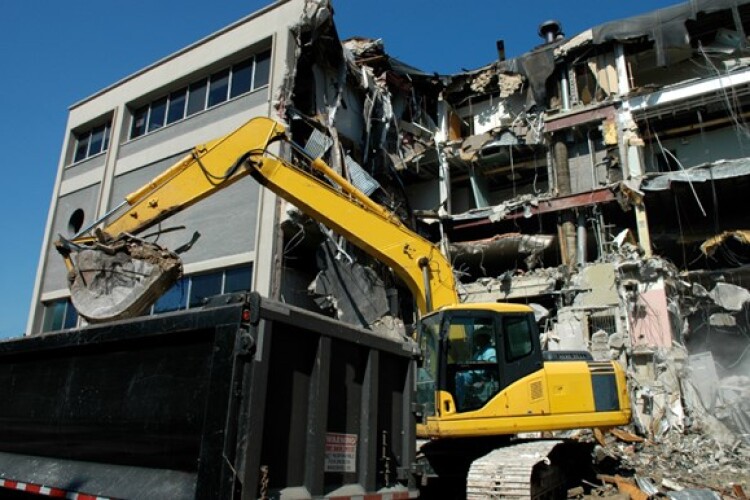The CIOB wants an end to the anomaly that 20% value added tax (VAT) is applied to building improvement work but not to new build. This can mean that perfectly good buildings are being knocked down and rebuilt instead of being refurbished because the absence of VAT makes it cheaper. This is usually ecologically inefficient.
A paper produced by CIOB Scotland says that so longs as VAT is a matter for Westminster and not devolved to Holyrood, Scotland cannot remove VAT on building improvement works – but it could and should impose a demolition levy to stop knockdown/rebuild being artificially cheaper.
“Considering the unequal playing field created by today’s VAT structure, we urge the Scottish government to consider the value a demolition levy could bring to the sustainability of our built environment, the economy, and Scotland’s construction sector writ large,” the CIOB paper concludes. “A demolition levy could go a long way to addressing sustainability challenges and focusing on retrofit rather than demolition.”
The 20-page document, Levelling the playing field, not Scotland’s built environment: a case for retrofit over demolition?, offers evidence to support its argument .
“Regulatory measures have been proven effective in undergirding similar types of sectoral culture shifts in the UK. Landfill taxes and the application of an aggregate levy facilitated a
70% decline in the amount of construction & development waste (CDW) disposed to landfills in the UK.41 International studies have further demonstrated the efficacy of financial levers in driving change. Calvo et al examined a variety of policy models engaging levies and economic incentives in mitigating CDW waste in Spain. They concluded that levies were more effective at CDW mitigation than financial incentives, achieving the targeted 30% reduction in CDW two years sooner. Further, the levy model had the co-benefit of providing a new revenue stream for the government.

“This evidence base suggests that a demolition levy, applied in the Scottish context, could catalyse a shift in priority to favour retrofit projects. Over the last five years, an average of 993 demolitions have been reported in Scotland annually. These figures represent a very conservative estimate, as provided by local authorities, and likely exclude many private demolitions. While the scope and cost of each project will vary, these figures paint a compelling picture of the scale of loss to the existing built environment each year.
"With the addition of a demolition levy, the Scottish government could help to re-balance the economic scales between retrofitting and rebuilding. Further, the revenues from these demolition levies could support green initiatives that support homeowners and social landlords to make energy-efficient upgrades to housing, help low-income and vulnerable households cope with home repairs and rising fuel prices, or preserve Scotland’s historic building stock.”
Jocelyne Fleming, CIOB policy & public affairs officer for Scotland, and author of the paper, said: “We hear about the need to move away from a throw-away society and upcycle and recycle when it comes to things like clothes and furniture, and this needs to be extended to buildings too. It’s not only about the environment though - some wonderful Scottish buildings could also be reduced to rubble and lost forever just because it’s cheaper to knock them down than renovate them, and that would be a travesty.
“However, at a time when businesses are often making decisions based mainly on cost, it needs to be as financially viable to restore as to demolish if we’re to improve the sustainability of construction and help Scotland reach its net zero targets. We’re sharing our report with government and hope the notion of a demolition levy will be considered alongside other more long-term solutions.
“Ultimately, this is about levelling the playing field, not our built environment.”
Got a story? Email news@theconstructionindex.co.uk
.png)


